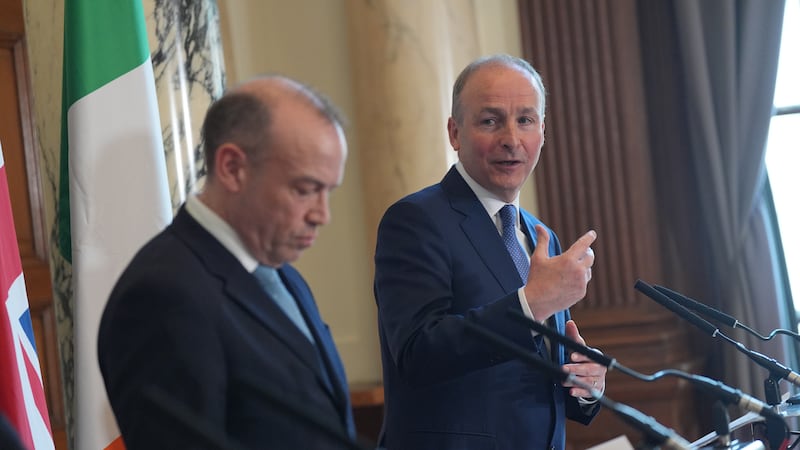In November 2014, DUP social development minister Mervyn Storey announced a review of Northern Ireland’s private rental market.
Twelve months later, at the height of the Fresh Start crisis, he put a discussion document out to public consultation. The closing date was February 2016 and publication was promised soon after but nothing subsequently appeared.
Four weeks ago, DUP communities minister Paul Givan - who inherited the social development portfolio - put policy proposals out to public consultation.
The release of both documents during successive Stormont meltdowns is probably a coincidence.
Crises now recur annually - faster than anything else on the hill. By comparing the two sets of proposals, however, we can say for a fact that time has whittled them down.
The first consultation posed leading questions on tackling overcrowding, increasing long-term tenancies, lengthening notice periods and enforcing higher property standards.
None of this has made it into the latest consultation. All that survives is a bare minimum proposal for 12 month gaps between rent increases, plus a promise to legislate for mandatory smoke and carbon monoxide alarms and “periodic electrical inspections” - something whose current absence is extraordinary.
Even on this matter of life and death, delivery is hardly imminent. It would ordinarily take another six months to a year for a review at this stage to be adopted as policy. Any legislative commitments could take a further one to two years, to which must be added at least six months for the latest Stormont crisis. So basic safety for tenants might be implemented a mere five years after Storey first announced his review.
The role of housing benefit is a striking omission from the latest policy proposals. It is mentioned as a major market factor - 55 per cent of private tenants receive it - but no consideration is given to using benefits to force rents down, nor is there any admission of their role in propping rents up.
How quickly we have forgotten the Stormont crisis of the previous three years, which was supposedly all about mitigating welfare reform and especially the so-called ‘bedroom tax’. The taxpayer subsidy to landlords, paid via benefits and soon to be paid to them directly, is completely off the agenda.
The most revealing comparison to make is not between Stormont’s latest and previous positions but with policies in the rest of the UK and Ireland.
Dublin introduced rent controls in major cities last year, following a year-long regulatory crackdown. The latest Stormont document rules rent control out for all but the most unfit of older properties.
Last month, the British government published a housing white paper for England that, in addition to protecting tenants, contains numerous carrot and stick policies aimed at builders, developers and landowners, to improve the volume and quality of housing supply.
This includes punitive taxes on empty property and full recovery of the windfall profits made from planning approval.
Stormont has the power to do all of this but nothing like it has even been considered. The Department of Communities has two main proposals to increase supply: lure developers in from Britain, no doubt attracted by our regulatory free-for-all; and “explore opportunities” for shared housing from Fresh Start’s £500 million, 10-year sharing and integration fund, the first year of which has already been forfeited through delay.
Why is real pressure for better housing supply not being considered here? We know from the Renewable Heat Incentive (RHI) fiasco that even without public consultation, policies are developed against a constant background of commercial lobbying.
David Cameron once said lobbying was the next great political scandal, while Sinn Féin is now throwing the term ‘corruption’ around at every opportunity.
Yet the striking thing to emerge so far on RHI lobbying is how open it was, with industry groups even pointing out the scheme’s critical flaws. Nothing dodgy had to happen for the DUP to behave like an over-generous friend at the bar.
‘Let me get this round,’ it seemed to say. ‘Sure it’s all on expenses.’
That may go a long way to explaining why builders, developers and landowners will not be much troubled by Stormont’s approach to the private rental market.
An additional factor may be the high proportion of MLAs who are in the rental business themselves - either declared or via immediate family. They live in an environment where being a landlord is as normal as taking five years to do almost nothing.
Incredibly, private tenants in Northern Ireland would be better off under the Tories.









